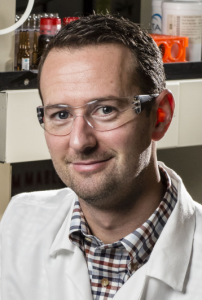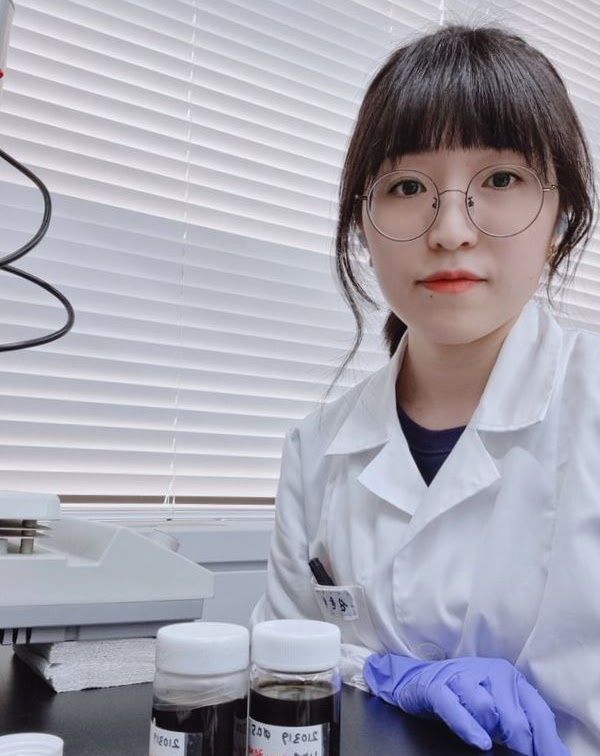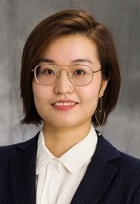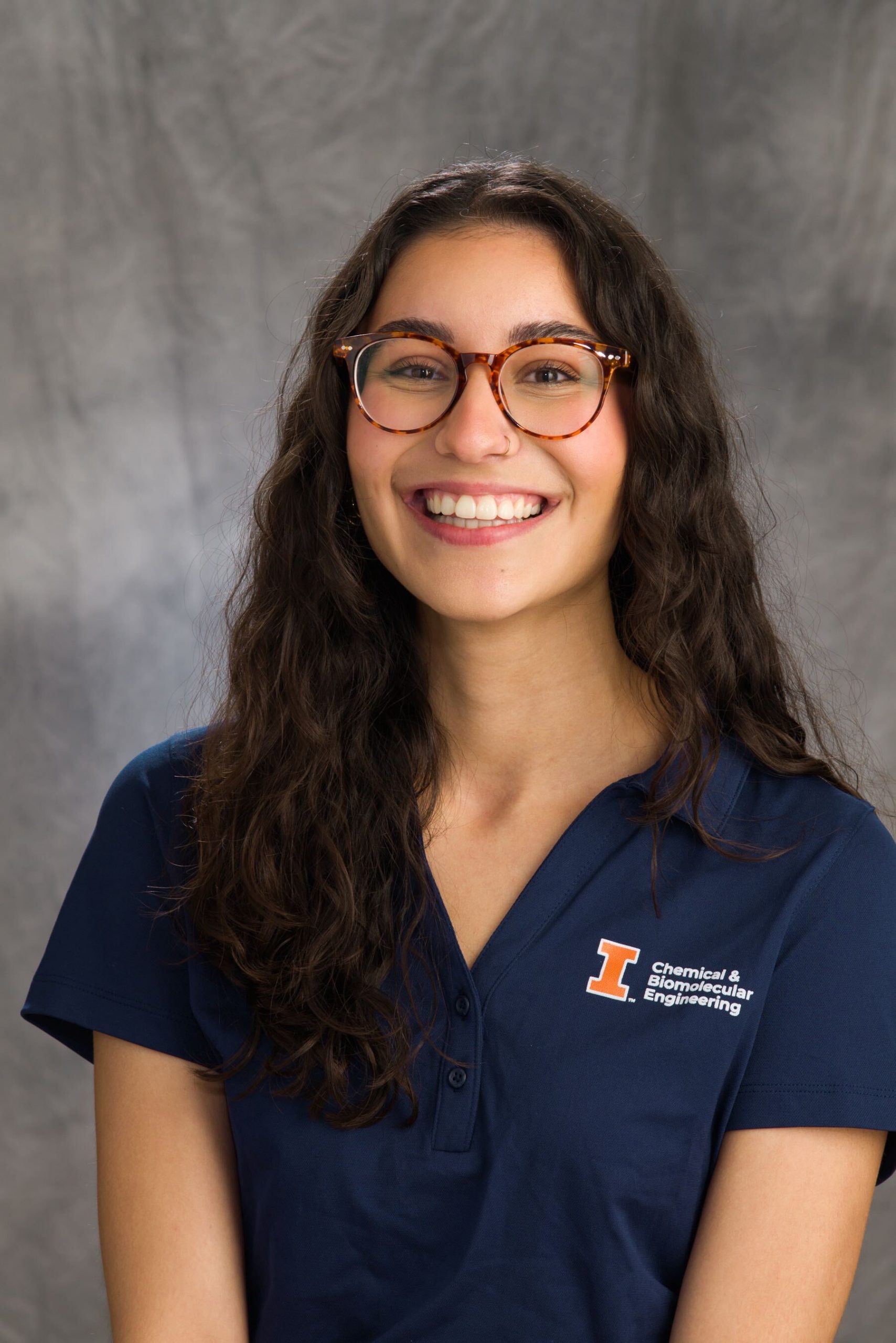People
Simon Rogers
(217) 333-0020
Assistant Professor, Chemical and Biomolecular Engineering
Ph.D. Physics, MacDiarmid Institute for Advanced Materials and Nanotechnologies,
Victoria University of Wellington, New Zealand, 2011
“The Ageing and Rejuvenation of Soft, Glassy Complex Fluids”
Advisor: Prof. Sir Paul Terence Callaghan
POSTDOCTORAL RESEARCHER
 Yul Hui is interested in direct ink writing (DIW) printing to fabricate 3D structures and is working on rheological protocols that can provide guidelines for this. As a model system for ink, a colloidal suspension with 2D plate structures or polymer solution is used. In DIW printing, the key properties are the rheological transitions of yielding and unyielding, where material changes from acting as a solid to acting as a fluid and vice versa, during the printing process. Therefore, she studies the rheological transitions with yield stress fluids, which could potentially be applied to various processes accompanying shear such as printing, coating, and spinning.
Yul Hui is interested in direct ink writing (DIW) printing to fabricate 3D structures and is working on rheological protocols that can provide guidelines for this. As a model system for ink, a colloidal suspension with 2D plate structures or polymer solution is used. In DIW printing, the key properties are the rheological transitions of yielding and unyielding, where material changes from acting as a solid to acting as a fluid and vice versa, during the printing process. Therefore, she studies the rheological transitions with yield stress fluids, which could potentially be applied to various processes accompanying shear such as printing, coating, and spinning.
GRADUATE TRAINEES
 Rheology plays a critical role in the effectiveness of consumer products such as food or cosmetics. Traditional rheological metrics tend to focus on the steady state behavior of these materials while human perception operates on instantaneous to short responses. As a result, there is a disconnect between what rheologists measure and the real feelings that people report. The goal of my work is to develop new methods and metrics that better align with what people actually perceive (i.e., psychorheology). This will allow us to tailor a material’s rheology in a way that increases consumer enjoyment. My research includes theoretical derivations, modeling, practical experimental measurements, and statistical analysis.
Rheology plays a critical role in the effectiveness of consumer products such as food or cosmetics. Traditional rheological metrics tend to focus on the steady state behavior of these materials while human perception operates on instantaneous to short responses. As a result, there is a disconnect between what rheologists measure and the real feelings that people report. The goal of my work is to develop new methods and metrics that better align with what people actually perceive (i.e., psychorheology). This will allow us to tailor a material’s rheology in a way that increases consumer enjoyment. My research includes theoretical derivations, modeling, practical experimental measurements, and statistical analysis.
 Materials that show yielding behavior are used in many applications such as 3-D printing, petroleum and chemical processing, cosmetics, and food processing. Their crucial design feature is the capability to show a range of behaviors such as solid-like when left alone and fluid-like under high loading conditions. Despite its rampant use for various applications, little is known about the yielding dynamics at microscopic and mesoscopic levels, experimentally and theoretically. My research aims to resolve this by combining theoretical and experimental techniques that are based on recovery rheology. The current focus is on developing a 3-D model that captures these materials’ transient and steady-state behavior during a range of commonly-observed rheological protocols.
Materials that show yielding behavior are used in many applications such as 3-D printing, petroleum and chemical processing, cosmetics, and food processing. Their crucial design feature is the capability to show a range of behaviors such as solid-like when left alone and fluid-like under high loading conditions. Despite its rampant use for various applications, little is known about the yielding dynamics at microscopic and mesoscopic levels, experimentally and theoretically. My research aims to resolve this by combining theoretical and experimental techniques that are based on recovery rheology. The current focus is on developing a 3-D model that captures these materials’ transient and steady-state behavior during a range of commonly-observed rheological protocols.
 Plastics that play a prominent role in our daily life are made from synthetic polymers, which typically include unknown degrees of branched architectures. Understanding the flow behaviors of different branched polymers in highly nonlinear industrial processes can help optimize plastics forming operations and introduce more interesting mechanical properties to final products. The goal of my project is to correlate the architectures of branched polymers to their rheological behaviors in nonlinear operations. Current focuses are performing oscillatory shear recovery tests on different branched polymers and carrying out theoretical analysis to provide insights further. Besides testing different branched polymers, I’m also working on analyzing the nonlinear rheology of the wormlike micelles.
Plastics that play a prominent role in our daily life are made from synthetic polymers, which typically include unknown degrees of branched architectures. Understanding the flow behaviors of different branched polymers in highly nonlinear industrial processes can help optimize plastics forming operations and introduce more interesting mechanical properties to final products. The goal of my project is to correlate the architectures of branched polymers to their rheological behaviors in nonlinear operations. Current focuses are performing oscillatory shear recovery tests on different branched polymers and carrying out theoretical analysis to provide insights further. Besides testing different branched polymers, I’m also working on analyzing the nonlinear rheology of the wormlike micelles.

My research revolves around furthering the our understanding of yielding fluids. A yielding fluid is typically a soft material which transitions from solid-like behavior to liquid-like behavior above a specific stress or strain threshold. Yielding fluids are ubiquitous in our lives, from cosmetics, to food, as well as industrial processes. Yielding behavior can be seen in things such as avalanches and mud-slides as well. I am developing new testing protocols to probe the recoverable and unrecoverable nature of yielding fluids, as well as working with others in the group to further our understanding of constitutive models for yielding materials.

Polymer nanocomposites are of integral importance in the world around us. Applications include a wide range of systems such as shoe soles, tires, earthquake shock absorbers, biomimetic, and self-healing materials. Understanding these materials behavior under nonlinear deformations can help improve their design, processing, and product lifetime. Thus, the goal of my project is to use a rheology as a tool to understand polymer nanocomposites’ time dependent behavior under large deformations.
UNDERGRADUATE TRAINEES
Eden Li is an undergraduate researcher working with Matt on the characterization of bottlebrush polymers.
Jiseong Jeong is an undergraduate researcher working with Krutarth.
Elizabeth Miczuga is an undergraduate researcher working with Jimmy.
VISITORS
John spent some of his sabbatical in our lab in the summer of 2017, visiting from the the Department of Physics and Astronomy at Western University in London, Ontario, Canada. John is an expert in yield stress fluids, and the physics of fluids in general. His research is mostly in the area of experimental condensed matter physics, and centers on soft materials, the physics of biological systems, and the dynamics of systems driven out of equilibrium.
ALUMNI
Matt studied bottlebrush polymers. Bottlebrush polymers are a set of novel materials characterized by densely packed polymer sidechains connected to a single backbone, resulting in a in a semi-stiff cylindrical macromolecule. These materials exhibit a range of physical properties depending on the processing conditions, thus making them interesting from a 3D printing perspective. My research seeks to characterize the viscoelastic properties of bottlebrush polymers with varying geometries and compositions through transient and out-of-equilibrium rheological techniques. Various scattering techniques are used to identify the physical structure of these polymers while under conditions stresses similar to those experienced during 3D printing.
Piyush studied the underlying fundamental processes in self-stratifying coatings i.e. smart coatings with the aim of developing novel and advanced functional materials based on this approach. He also worked toward developing advanced experimental techniques and theoretical frameworks for nonlinear shear rheology, aimed at developing structure-property-processing relationships for a wide variety of materials.
A yielding fluid is a type of soft material which exhibits a transition between solid-like elastic extension and liquid-like flow at a specific stress. Examples of yield stress fluids include toothpaste, shaving cream, mayonnaise, and drilling fluids, to name just a few. Despite their ubiquity, a standardized method for characterizing their yielding behavior has not been defined. In order to resolve this, we are designing novel time-resolved rheometric methods for probing the yielding transition. This research combines analysis, theory, and experiment to achieve new solutions to an old problem.
Jiho’s doctoral research was on thixotropic suspensions and performing novel experiments that map the stresses and strains during deformation. Jiho worked on unifying metrics used to understand oscillatory shearing, and developed protocols for how best to obtain consistent data from time-dependent materials. Jiho is an award-winning rheologist, having won a poster prize at the Society of Rheology’s 90th Annual Meeting, held in Houston in 2018. Jiho is now working at the Korea Institute of Science and Technology.
Johnny’s doctoral research focused on polymer rheology and self-assembly. He developed new experimental protocols using rheometry to search for polymer topology-rheology relationships that act as more precise tests of proposed theories. Beyond bulk rheology, small angle scattering (SALS and SANS) techniques are also used to relate rheological results to the microstructure of these polymeric materials. Johnny was awarded the Neutron Scattering Society of America’s Outstanding Student Research prize in 2020. Johnny is now working in the rheology group at Corteva.
JD was an integral part of the group from August of 2016 until February of 2019. JD was the group’s first post-doc, and is now an Assistant Professor in the Department of Chemical and Biological Engineering at Sookmyung Women’s University in his native South Korea.
Mikah Favis was an undergraduate researcher who worked with Matt on understanding concentrated suspensions of bottlebrush di-block copolymers in 2019 – 2020.
Victoria Wisniewski was an undergraduate researcher who worked with Gavin on developing methods for expanding frequency sweep information via chirp rheology, and using strain-shift measurements to better understand yielding from 2017 – 2020.
Shiv Patel was an undergraduate researcher who worked with Jiho on making transient measurements on thixotropic suspensions in 2018 – 2019.
Taha Mohamed was an undergraduate researcher who worked with JD on colloidal glasses in 2018.
Emmanuel Akanbi was an undergraduate researcher in the lab from 2016 – 2018 and worked on stress jumps in thixotropic colloidal suspensions.
Dawna Peterson was an undergraduate researcher in the lab from 2016 – 2018 and worked on colloidal gels taken out of equilibrium via large amplitude oscillatory shearing.
Ugonna Oduocha was an undergraduate researcher in the lab from 2016 – 2018 who submitted his senior thesis on experimental and population balance modelling of colloidal gels under LAOS.
Yasmin Abumaye was an undergraduate researcher in the lab in 2017.
Aza Walker was an undergraduate researcher in the lab in 2016.
